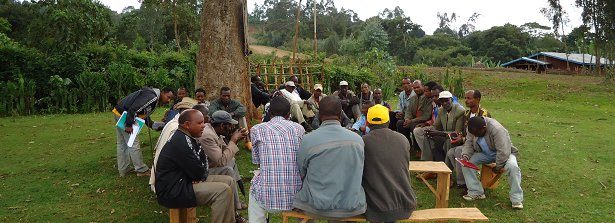Practice note: Adaptive programme management in fragile and complex settings

Adaptive programme management (APM) is an evidence-based approach to programme design and implementation increasingly used in international development. At the core of APM approaches lies a deliberate strategy for interim adjustments to a programme on the basis of focused learning around its objectives. This note produced by The Broker, supported by the Food & Business Knowledge Platform (F&BKP), provides insight into the core aspects of APM strategies with concrete examples from practice.
In the field practitioners might be faced with all kinds of change; extreme weather events, conflict, social change, changing governments or changing policy priorities. To remain relevant in the face of such events programme adaptation is often required. APM facilitates a structured approach to such adaptation, not only as a way to manage risk and change, but also to take advantage of opportunities that arise to maximize impact. In these approaches adaptation is thus taken as their core strategy, with learning at its centre.
The development of these adaptive strategies has been a response to stakeholders calls to make international development programmes more flexible and responsive to their context. Most prominently through the 2014 Doing Development Differently manifesto. During several meetings of the Food Security and Stability Community of Practice this need for increased flexibility was voiced as well. For instance in discussions on implementing UNSC Resolution 2417 on hunger and conflict in relation to interventions on the humanitarian-development nexus. Or in the workshop on conflict sensitivity in food security interventions.
The 4-pager note succinctly describes different adaptive elements with examples from practice, such as evolutionary approach to programme design, flexible financial frameworks or the use of real-time data. It also provides lessons and recommendations based on practitioner experiences and insight into key resources to gain further understanding of the topic.
| Documents to download |
|






